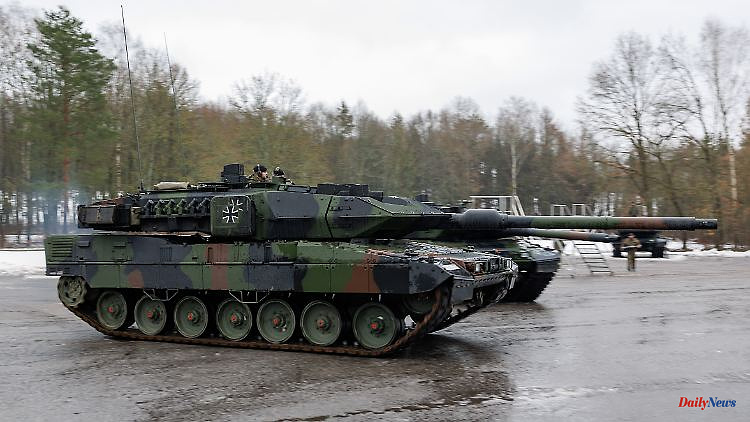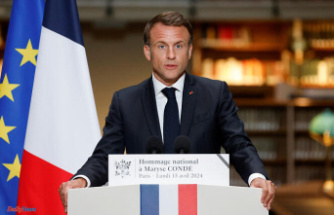Germany's top army soldier sees enormous pressure: the weapon systems handed over to Ukraine must be bought as quickly as possible. Nevertheless, he does not want to repeat an earlier assessment of the situation of the Bundeswehr.
According to Army Inspector Alfons Mais, the 100 billion euro special fund for the Bundeswehr will not be sufficient for full equipment. However, the lieutenant general is making progress in the procurement process. "I see a great deal of pressure to move forward with the replacement purchases at full speed.
"We haven't given up the Leopard tanks yet and are rightly considering how we can replace them as soon as possible," said Mais. "It took a very long time for the self-propelled howitzer and the rocket launchers, but there is now extremely high pressure there too." In addition to replacing material that was handed over to Ukraine, the "material growth towards full equipment" is important, emphasized Mais. "However, the special fund alone will not be enough."
Immediately after the Russian attack on Ukraine, Mais had criticized the years of neglect in the operational readiness of the Bundeswehr with unusual sharpness. The Bundeswehr is "more or less blank," he wrote, causing a stir. "I'm trying not to use the term blank anymore. That doesn't do justice to the situation today, a year later," said Mais. A lot has happened since then and the readiness for action should not be limited to the material. "Things are moving forward."
Aid for Ukraine is a "huge effort, but it has to be." The troops know that, but ask about the future. "It is very important that we all give the signal that the material that is being handed over will be replaced as soon as possible. That these gaps are not simply accepted," said Mais. "The gaps don't match the future orders. The government has promised NATO capabilities, and of course we want to keep that."
The scenario for national and alliance defense is different than in Afghanistan. Germany's security policy goal in international crisis management has already been achieved to a large extent if you are there with the politically opportune skills. In addition, a personal upper limit is set. And in the end, "the protection of the troops from the effect on the target" stands. "If it got too dangerous outside, we could all stay in the camp for two days. That's completely absurd in the national and alliance defense scenario. The goal isn't to 'take part', it's to win," said Mais.
"When I send a battalion on a mission, I have the expectation that it will fulfill its mission and emerge victorious from this battle. This is where effect comes before cover, effect before protection. It's a completely different approach that we also have to mediate to our troops, who have experience in Afghanistan." In Afghanistan, the Bundeswehr did not actively seek combat; in principle, it was forced upon them. Mais: "That would be different now. In national and alliance defense, the associations are looking for a battle." That means: "Taking space, defending space, these are completely different terms. Initiative is the keyword here."
The 60-year-old now sees three generations in the Bundeswehr who have had different military experiences. "My generation lived through the Cold War. It was about keeping the deterrent factor so high that the enemy could not calculate the costs of aggression. At that time it was a deterrent, being able to fight so that you didn't have to fight."
The mid-level staff is shaped by Afghanistan. "I have brigade and division commanders who fought battles, who 13 years ago as battalion commanders sent their companies and platoons into battle and thus also ordered the killing." This was against "asymmetric opponents" fighting with booby traps from ambush. "But we still have a core from that time in our teams and in the non-commissioned officer corps, to whom we don't have to explain what it means to be in combat. Then there are the very young soldiers, who impressed with their affinity for technology.
The 10th Armored Division is currently being reorganized as Division 2025 to provide NATO with a combat-ready division by this year. In return, the 1st Armored Division gave up material, took on current orders and covered the backs of the other large formation. Their gaps are to be filled again from the special fund.
Mais reiterated earlier statements that he was firmly convinced of the modern Puma infantry fighting vehicle as a replacement for the Marder infantry fighting vehicle after the background to the damage had been clarified during an exercise in December. "I therefore have an extremely high interest in the Puma's brakes being released again as soon as possible," he said. It is important to enter the so-called second lot - a second bulk order for the weapon system. He hopes that April will give the green light to close the contracts. "I'm convinced of the Puma," says Mais.












